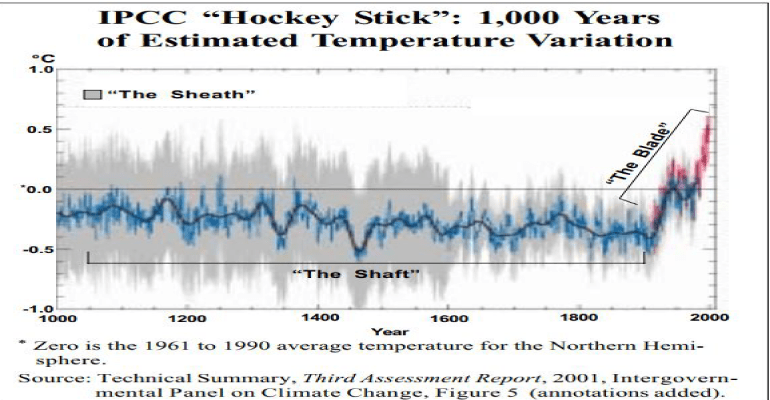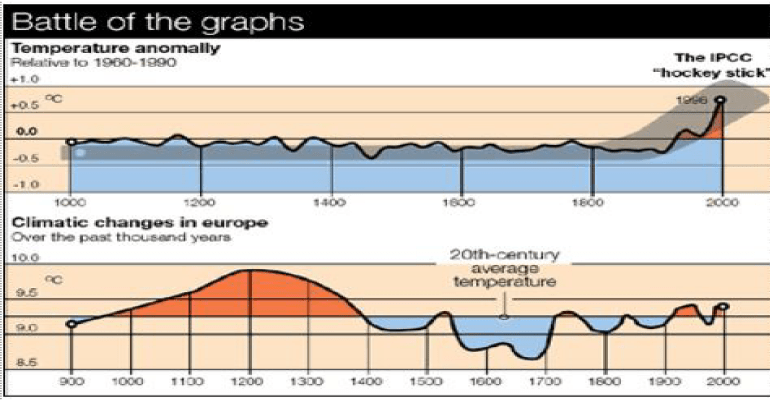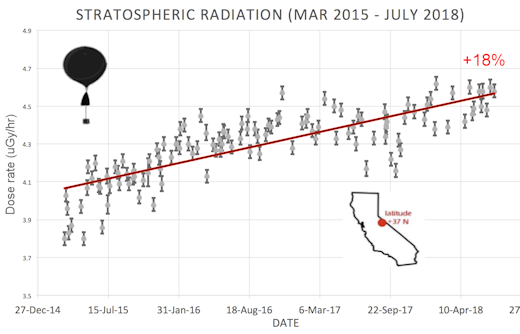
“Where will the Children play?” asked Cat Stevens (Yusuf) in his popular song from the 70s. The climate, like the times, is always changing, and as a parent, I ask myself the same question Cat did all those years ago. But discerning the truth about our changing environment and the mechanisms that cause it isn’t as easy as the Media portrays it.
by Martin Harris
As both a parent and a concerned member of the human race, I’ve supported a great many environmental causes either by helping spread the word, signing petitions, or turning up to events. Fracking, offshore oil drilling, water issues, 1080 poisoning, light and EMF pollution…the list goes on. There is one particular issue, however, that I harbor doubts and a great many questions about: Human induced climate change, sometimes referred to as “man made Global Warming”. The deeper I delve in to this subject, the more I find to be skeptical about.
Yes, the climate is changing. It is changing on a daily basis, indeed it has never been static. For billions of years the climate of our active, living, ever-evolving planet has changed along with it’s geology and ecosystems. Sometimes, the change occurs rapidly, even catastrophically, and has done so many times long before Homo Sapiens emerged.

What climatologists and environmental scientists are allegedly telling us, is that regardless of what has happened in the past, the climate is now changing at an alarming rate, and that we humans are the primary cause. They point to data showing a correlation between the commencement of the Industrial Revolution, and marked rise in global temperatures with obvious ecological repercussions. But, as skeptics are fond of reminding us, “Correlation is not necessarily causation”. We’ll return to this shortly.

Firstly, though, I’d like to share contemplation on the concept of “Man-made vs. Natural”. We should reflect on this supposed distinction. Mainstream science tells us that we are a product of evolution (or, are we genetically engineered by extraterrestrials and therefore not a natural evolutionary development?). Therefore surely, as part of the natural world, are we not therefore fulfilling our evolutionary role? I guess the point of distinction is psychological: Unlike other animals, we are sentient, self-aware, capable of reflection and analysis and self determination. We do not act purely on instinct. We therefore have a sense of responsibility towards our planet. Or at least some of do. We therefore have the ability to willfully affect change to our environment for better or worse, and learn from the results.
Back to the current climate change issue.:
The 97% claim: Fact Or Fiction?
Whether online, in printed media, or in face to face discussion (yes, it still takes place!), the proponents of “Man made” (as women have are apparently immune to blame!?) Climate Change as being the leading cause of environmental change consistently repeat the statement that “the science is done” because “97% of scientists agree on the matter”. I get this claim thrust at me like a magic talisman against any rational questioning of the narrative. It has become a mantra: the chant of a brainwashed cult member.
If the 97% claim were true, then the dissenting 3% could represent the next Darwin or Galileo. Just because 97% agree does not necessarily mean they are 100% right. Recent examples come readily to hand of Peer Reviewal cock-ups. In one recent case, a lone doubter discovered the mistake:
Published in Nature, the paper by researchers from the University of California San Diego and Princeton found that ocean temperatures had warmed 60 percent more than current estimates.
phys.org
They concluded, with no small sense of alarm, that even the most ambitious emissions cuts laid out in the global plan to prevent climate disaster would need to be slashed again by another 25 percent.
Soon after publication, an independent climate scientist—one who has repeatedly voiced scepticism of the consensus that human behaviour is causing global warming—spotted an error in the Nature paper’s maths.
“After correction, the… results do not suggest a larger increase in ocean heat content than previously thought,” Nicolas Lewis wrote on his Climate Science blog.
“Just a few hours of analysis and calculations was sufficient to uncover apparently serious (but surely inadvertent) errors in the underlying calculations.
“It is very important that the media outlets that unquestioningly trumpeted the paper’s findings now correct the record too. But perhaps that is too much to hope for,” he added…
Read more at: https://phys.org/news/2018-11-climate-scientists-wrong.html#jCp
We should never dismiss the minority as being automatically wrong.
All this is assuming the 97% claim is correct. Unfortunately, it isn’t.
Logic: There must be millions of scientists currently extant, working in a diverse variety of fields and disciplines. It has been my observation that getting 97% of ALL scientists to form a consensus on anything as simple as the formal definition of a toothbrush is a near impossibility, let alone forming a concrete agreement on anything as complex as the primary mechanism of global climate change.
Putting the ‘con’ in consensus; Not only is there no 97 per cent consensus among climate scientists, many misunderstand core issues
Like so much else in the climate change debate, one needs to check the numbers. First of all, on what exactly are 97 per cent of experts supposed to agree? In 2013, U.S. President Barack Obama sent out a tweet claiming 97 per cent of climate experts believe global warming is “real, man-made and dangerous.” As it turns out, the survey he was referring to didn’t ask that question, so he was basically making it up. At a recent debate in New Orleans, I heard climate activist Bill McKibben claim there was a consensus that greenhouse gases are “a grave danger.” But when challenged for the source of his claim, he promptly withdrew it.
Fraser Institute
In fact, according to one study, the percentage of agreement could be a staggeringly low One Point Six Percent!
So 64 out of 11,944, or 0.5%, take the view that humans are the main cause of global warming. But that includes all abstracts, including those that did not take a position. It would be nice to take the 64 as a percent of those that did take a position. Unfortunately, in their data set, Cook et al put 4a, those that do not address the cause of global warming, with 4b, those that express the view that humans’ role in global warming is uncertain or undefined. It would be nice to separate them, but we can’t unless we have the even rawer data. So let’s generously conclude that everyone in category 4 has expressed no view. That’s a total of 7970, leaving a total of 3,974 that have expressed a view. The 64 who think the main cause is humans is, drum roll please: 1.6%.
https://www.econlib.org/archives/2014/03/16_not_97_agree.html
1.6% is pretty different from 97%, don’t you think?
So what does this “97%” figure really represent?
Environmental scientists? Meteorologists? Climatologists? A specific group of Climatologists?
Actually, the answer is “None Of The Above”.
Several studies of the consensus have been undertaken.[1] Among the most-cited is a 2013 study of nearly 12,000 abstracts of peer-reviewed papers on climate science published since 1990, of which just over 4,000 papers expressed an opinion on the cause of recent global warming. Of these, 97% agree, explicitly or implicitly, that global warming is happening and is human-caused.
https://en.wikipedia.org/wiki/Scientific_opinion_on_climate_change
Analyze that statement carefully. Only a third of the abstracts of papers reviewed were found to express an opinion. Not solid conclusion, just an opinion. Even then, the 97% agreement is a combination of explicit opinion and “implied” opinion. Starting to look awfully shaky, is it not? And this is the most often cited (therefore presumable most favorable to the cause) of “several studies”. One wonders what the other studies look like.
So, then; 97% of a third of all the abstracts of all the peer reviewed papers on climate science study done in 2013 contain an opinion, which could be merely implied (according to whose interpretation?), that global warming specifically (not climate change generally) is human-caused.
The 97% figure has nothing to do with the number of scientists agreeing on anything at all!
It is pure fabrication.
Cook is careful to describe his 2013 study results as being based on “climate experts.” Political figures and the popular press are not so careful. President Obama and Secretary of State John Kerry have repeatedly characterized it as 97% of scientists. Kerry has gone so far as to say that “97 percent of peer-reviewed climate studies confirm that climate change is happening and that human activity is largely responsible.” This is patently wrong, since the Cook study and others showed that the majority of papers take no position.
https://www.fraserinstitute.org/article/putting-con-consensus-not-only-there-no-97-cent-consensus-among-climate-scientists-

Questions must be asked: Who really forms a near-100% consensus on human-caused climate change being the primary mechanism behind climate change…or global warming?
In 2012 the American Meteorological Society (AMS) surveyed its 7,000 members, receiving 1,862 responses. Of those, only 52% said they think global warming over the 20th century has happened and is mostly man-made (the IPCC position). The remaining 48% either think it happened but natural causes explain at least half of it, or it didn’t happen, or they don’t know. Furthermore, 53% agree that there is conflict among AMS members on the question.
So no sign of a 97% consensus. Not only do about half reject the IPCC conclusion, more than half acknowledge that their profession is split on the issue.
https://www.fraserinstitute.org/article/putting-con-consensus-not-only-there-no-97-cent-consensus-among-climate-scientists-many
So it would seem that not even meteorologists form anything close to a consensus on this matter. In fact, only the Intergovernmental Panel on Climate Change; the IPCC, forms a consensus on human-induced activity being the primary driver of climate change or global warming.

How many members are there on this panel?
The IPCC currently has 195 members. Thousands of people from all over the world contribute to the work of the IPCC.
https://www.ipcc.ch/about/
How many scientist are there really, of all disciplines, in the world currently? Hard to be precise, but H Chris RansfordKarlsruhe Institute of Technology says: “Allowing for attrition (the above count includes people who have since then passed away) and extrapolating, taking into account both like and unlike educational systems and demographics worldwide, this indicates about 15 million or so scientists in the Western World, and probably 30 million or so worldwide, again depending on where certain bars are set.” (Source: Researchgate)
What about the IPCC’s “Hockey stick” graph depicted earlier in this blog? That’s a deception too, I’m afraid:

“battle of the graphs” the bottom panel shows temperatures based on proxy data and measurements. It shows that the Medieval Warm Period of 1,000 years ago was much warmer than now. Mann’s hockey stick did away with the Medieval Warm Period and showed only a large spike of recent warming – hence the name “hockey stick”.
Mann had another problem. Their proxy data began to rise, but then took a plunge into cooler temperatures. They hid this decline by truncating the proxy data and substituting rising measured temperatures without telling anyone. This became known as “Mike’s Nature Trick”.
SOURCE: https://arizonadailyindependent.com/2017/12/10/climategate-comes-back-to-bite-the-university-of-arizona/
So if we can’t trust the IPCC, what can we really say about humanity’s role in climate change?
Obviously, every responsible person wants to help reduce industrial pollution and manage our environment sustainably. But will these initiatives stop the climate from changing? Of course not. But they will have an effect; it could not be otherwise.
Many factors contribute to climate change besides human activity. I will go into greater detail on these factors in the second part of this blog, but one aspect to take into account is the weakening Magnetosphere and subsequent increase in cosmic radiation exposure:

http://www.spaceweather.com/
Why are cosmic rays intensifying? The main reason is the sun. Solar storm clouds such as coronal mass ejections (CMEs) sweep aside cosmic rays when they pass by Earth. During Solar Maximum, CMEs are abundant and cosmic rays are held at bay. Now, however, the solar cycle is swinging toward Solar Minimum, allowing cosmic rays to return. Another reason could be the weakening of Earth’s magnetic field, which helps protect us from deep-space radiation.
Take away the entire human race and all we have wrought, and this magnetic field weakening (and eventual North-South reversal) will continue to happen as it has many times in Earth’s past. As I said, this is but one factor of many. Some of these factors we can do nothing about, but worryingly, some of the “solutions” such as geo-engineering by stratospheric nanoparticle injection, (ostensibly to counter “the greenhouse effect”) could create even more environmental harm and could be considered a form of atmospheric pollution in itself.
Conclusion to Part One:
The “97% agree” claim is false. Someone Is playing upon our desire to make the world a better place for future generations, and becoming increasingly and stridently alarmist about the consequences of our failure to comply with their proposed initiatives and solutions. Facts and figures are being cherry-picked and manipulated to present a misleading picture of humanity’s role in earth’s changing climate. Politicians, celebrities, environmental activist organisations and the Mainstream Media are all being harnessed in a “common purpose” initiative. It is a trojan horse for a hidden agenda. While we can all agree that reducing human-made environmental pollution is a good thing, scientists are a long way from agreement on the primary drivers and therefore the effectiveness of “climate change combat” initiatives. A small but highly influential panel of climate “advisors” tells us otherwise. WHY?
I will explore who is behind this misinformation, and their real motives, in the final part of this blog.
Thanks for reading, and remember to ask questions, challenge data, do your research,and never assume what the media tell you is automatically true! There’s always more to the picture.
“Think for Yourself”
Martin










I like your article and it’s a shame the comment system is not conducive to lively debates like you are having on Neighbourly site.
Yes I agree Angelica
The reason the comments are set up for moderation is because, sadly, the site ended up being trolled to death a few years ago: The usual case of a few losers wrecking things for the majority:(